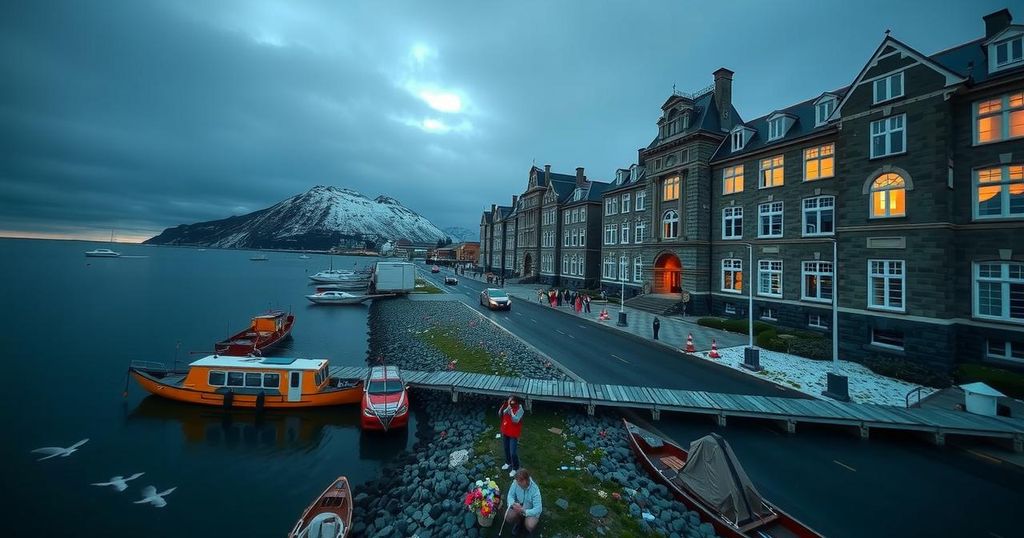Iceland is set to conduct its parliamentary election following the collapse of Prime Minister Bjarni Benediktsson’s coalition government. Key issues include economic instability, immigration challenges, and the aftermath of volcanic eruptions. The election is notable for its implications on Iceland’s political landscape as citizens face heightened living costs and societal tensions. Ten parties are contesting to secure seats in parliament against a backdrop of harsh winter weather conditions.
Iceland is gearing up for a parliamentary election following the collapse of Prime Minister Bjarni Benediktsson’s coalition government. The early election was necessitated by disagreements over pressing issues such as the economy, immigration, and consequences related to volcanic eruptions. This election marks a significant moment as it is the sixth general election post the 2008 financial crisis, heralding ongoing political instability within the nation.
As citizens prepare to vote on Saturday, the nation faces harsh winter conditions that threaten voter turnout and the logistics of ballot delivery. A total of ten parties are contesting this election, aiming to secure representation in the Althingi, the national parliament, which consists of 63 members. Historically, voter turnout has been high, with 80 percent participation noted in the last election.
Prime Minister Benediktsson’s recent challenges included maintaining a coalition with parties holding differing ideologies, as well as managing the economic strain that has recently increased. With inflation volatile, peaking at 10.2 percent earlier this year, many Icelanders face rising living costs, mirroring trends observed in many Western nations. The country is also grappling with housing shortages exacerbated by geological instability and an influx of asylum seekers, leading to heightened societal tensions.
In light of these challenges, the election outcome could signify a potential shift in Iceland’s political landscape, as public discontent with traditional parties has surged since the 2008 crisis, resulting in the emergence of new political entities focused on modern issues such as environmental sustainability and direct democracy.
This article discusses the ongoing parliamentary election process in Iceland, stirred by the collapse of a fragile governmental coalition led by Prime Minister Bjarni Benediktsson. The election is a response to long-standing issues born from previous financial crises and contemporary economic pressures, further complicated by natural disasters and changing social dynamics. Iceland’s political scene has evolved significantly since 2008, resulting in new parties and a diverse political landscape more attuned to the populace’s present challenges, including economic instability, rising immigration, and environmental concerns.
In summary, the forthcoming parliamentary election in Iceland represents a critical juncture for the nation amidst economic strain and social upheaval. The outcomes of this election may redefine the political fabric of Iceland, offering citizens a chance to reshape their government in response to pressing issues entangled with recent crises. The challenges of inflation, housing shortages, and immigration underscore the importance of this election in fostering a robust political dialog in the country.
Original Source: www.aljazeera.com






